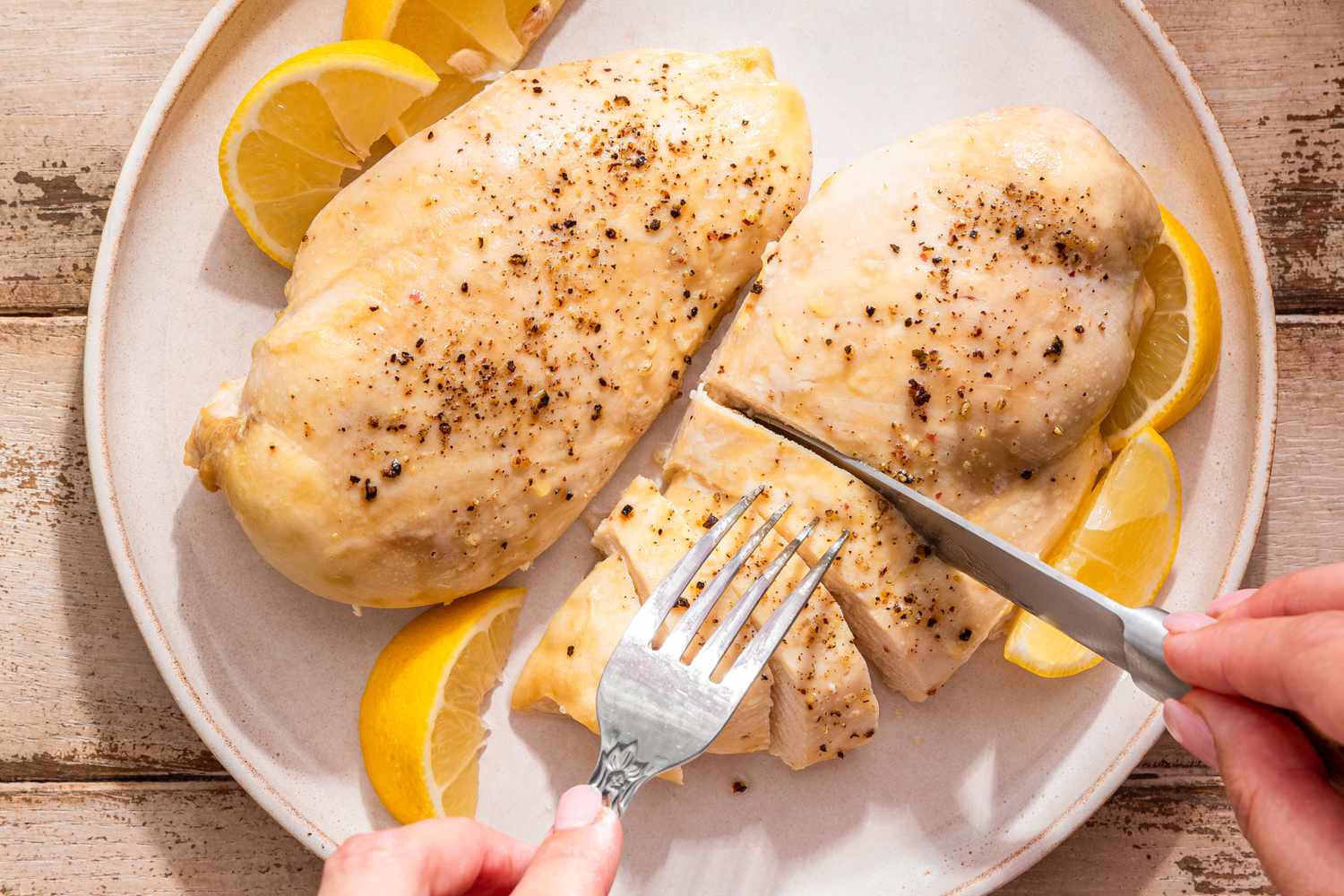When it comes to chicken breasts, it's the same old story. The lean protein cooks quickly and looks appealing, so you toss some in your grocery cart. But every time, it ends up dry, bland, and tough.
You may have sworn off buying chicken breasts ever again, but when dinnertime rolls around, the old routine repeats itself. You throw those chicken breasts in a skillet or oven, hope for the best, and serve something you know might taste better.
Boneless, skinless chicken breasts don't stand a chance! That's the truth I stand by. Without a barrier to keep the meat from drying out and without skin, bones, and fat to give it flavor and protection, it's no wonder they're notoriously boring.
I’ve been making way too many dried-out chicken breasts, and I finally decided to ask for help. I asked a handful of chefs how they tackle this daily cooking conundrum. Their answers reminded me of one of the most important lessons I learned in culinary school: Cooking is all about preparation. (They also reminded me that chefs tend to have a sense of humor. “If you absolutely must eat chicken breasts…” began one response.)
The 5 chefs I interviewed
The Best Way to Ensure Juicy and Flavorful Chicken Breasts
The chefs I spoke to recommend using bone-in, skin-on breasts. (Or, frankly, they suggest sticking with chicken thighs; they're juicier and harder to overcook.) However, when using boneless, skinless breasts, the common recommendation is to brine or marinate them in advance.
Whether it's a quick brine of just 20 to 30 minutes, an overnight salt bath, or an all-day soak in a marinade, preparing chicken breasts ahead of time gives you the succulent texture and flavorful finish you crave.
What is a brine?
Brining is a cooking method that infuses chicken breasts with salt, flavor, and moisture. A dry brine involves rubbing salt onto a chicken breast (or Thanksgiving turkey), and a wet brine involves submerging the breast in salted water.
Salt absorbs moisture from the meat and causes the proteins to break down slightly, tenderizing it and making room for more moisture and flavor to seep back in.
Simple recipes / Mihaela Kozaric Sebrek
How Chefs Recommend Using a Brine
Chef Demetrius says, “Brining chicken breasts is a must because it gives them much-needed moisture and flavor.” His favorite recipe is to use a wet brine: 4 cups water, 1/4 cup salt, 2 tablespoons sugar, 10 whole peppercorns, 3 cloves garlic, crushed, and the zest of half a lemon. He suggests bringing the mixture to a boil, letting it cool, then soaking the chicken breasts in the solution overnight. In the morning, remove the chicken and let it air-dry in the refrigerator for at least an hour before cooking.
Chef Brian is also on the dry brine team. He says it only takes 20 to 30 minutes to do this. That’s good news for those who don’t always plan 24 hours in advance to plan for an overnight brine. “Place two chicken breasts (skin-side up) on a baking sheet and salt them front and back with about a teaspoon of salt per breast and side. Let the chicken breasts sit in the refrigerator for 20 to 30 minutes. Remove from the refrigerator and pat dry with a paper towel before cooking,” he adds.
Chef Sean agrees. “The main thing I always recommend when cooking chicken breasts is brining. Not only does it ensure the breast is moist and flavorful, but it also helps to be forgiving if you overcook it slightly.” certainly it's done.
Marinating your chicken is also helpful
Marinating can also add flavor and help tenderize chicken breasts.
Chef Andrea says: “I love marinating my chicken breasts with a classic Mediterranean seasoning of lemon zest, salt, pepper, and rosemary. Letting it sit in the refrigerator overnight enhances its flavor. Another unique way to marinate chicken is with yogurt. The acidity of the yogurt tenderizes the meat and creates a light, crispy crust when pan-seared.
Nik Sharma also loves the yogurt marinade. He suggests marinating the chicken overnight, as the lactic acid in the yogurt helps the chicken absorb water, making it juicier. Sign me up!
The Best Way to Cook Chicken Breasts
What to do after brining or marinating chicken breasts? Chefs opt for pan-searing. Dry out brined or marinated chicken breasts and cook them over high heat in a skillet. It may sound risky, but a quick burst of heat followed by a rest (and this is the crucial part) can help you avoid overcooking your chicken.
Once you remove the chicken breast from the heat, its temperature will continue to rise. So sear it quickly over high heat until it's nicely browned, then remove it from the heat just before the internal temperature reaches 165°F (stop between 150°F and 155°F) to finish cooking while it rests. This method ensures that your chicken breasts won't overcook and dry out.



